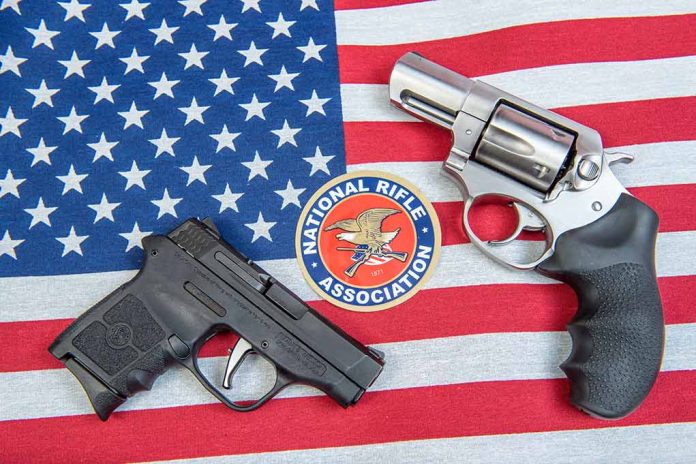
President Trump’s executive order challenging Biden’s gun reforms sparks significant debate on Second Amendment rights.
Key Takeaways
- The executive order aims to reverse Biden’s gun regulations, focusing on ghost guns and background checks.
- The NRA shows strong support, while gun reform advocates express concerns.
- Attorney General Pam Bondi is charged with reassessing policies for Second Amendment violations.
- Trump’s order may lead to changes in ATF enforcement priorities and a review of gun violence prevention efforts.
Trump’s Executive Order: A Call to Reassess Gun Control
President Donald Trump has issued an executive order intending to roll back various gun reforms established during President Biden’s term. This order primarily targets regulations like expanded background checks and oversight of gun dealers, claiming potential encroachments on Second Amendment rights. As part of this initiative, Attorney General Pam Bondi will review these policies and suggest a plan to counteract regulations perceived as overreaching.
The NRA has voiced its approval, stating that Trump is fulfilling promises to law-abiding gun owners. Meanwhile, gun reform advocates criticize the order, arguing that Biden’s policies have reduced gun-related homicides and align with constitutional rights. This move reflects ongoing debates regarding the balance between regulatory measures and gun rights.
President Donald Trump issued an executive order calling for a review of all Second Amendment-related policies, projects, rules, and government actions from January 2021 through January 2025. https://t.co/MTXELQHBnh
— NTD News (@NTDNews) February 10, 2025
Contentious Legal and Public Reactions
The order has triggered both legal contention and public discourse. Legal battles, such as the Supreme Court’s decision to abstain from contesting state firearm bans, add complexity to the issue. Smith & Wesson’s upcoming trial for alleged illegal gun trade connections further ignites the legal scene. Advocates like Gabby Giffords caution against dismantling Biden-era policies, highlighting their contribution to public safety.
Trump’s order emphasizes a comprehensive review of previous executive actions, DOJ rulemakings, and ongoing gun violence prevention initiatives. This suggests a broad attempt to scrutinize and potentially overturn established regulations.
NAGR Applauds Executive Order to Protect Second Amendment Rights
WASHINGTON, D.C. – The National Association for Gun Rights (NAGR) commends President Trump’s Executive Order directing the federal government to review unconstitutional infringements on the Second Amendment imposed… pic.twitter.com/1K7y37h5mh
— National Association for Gun Rights (@NatlGunRights) February 7, 2025
A Broader Policy Impact
Trump’s executive order may lead to significant consequences for federal firearms policies. The Department of Justice has been asked to align with new firearms policies, possibly affecting pending civil and criminal cases. This order could also influence ATF’s enforcement priorities and revisit contentious regulations like the pistol brace rule.
The ongoing discourse reflects the need for careful examination of how regulations interact with constitutional rights. As debates unfold, the implications of Trump’s executive order remain pivotal in shaping America’s Second Amendment landscape.


